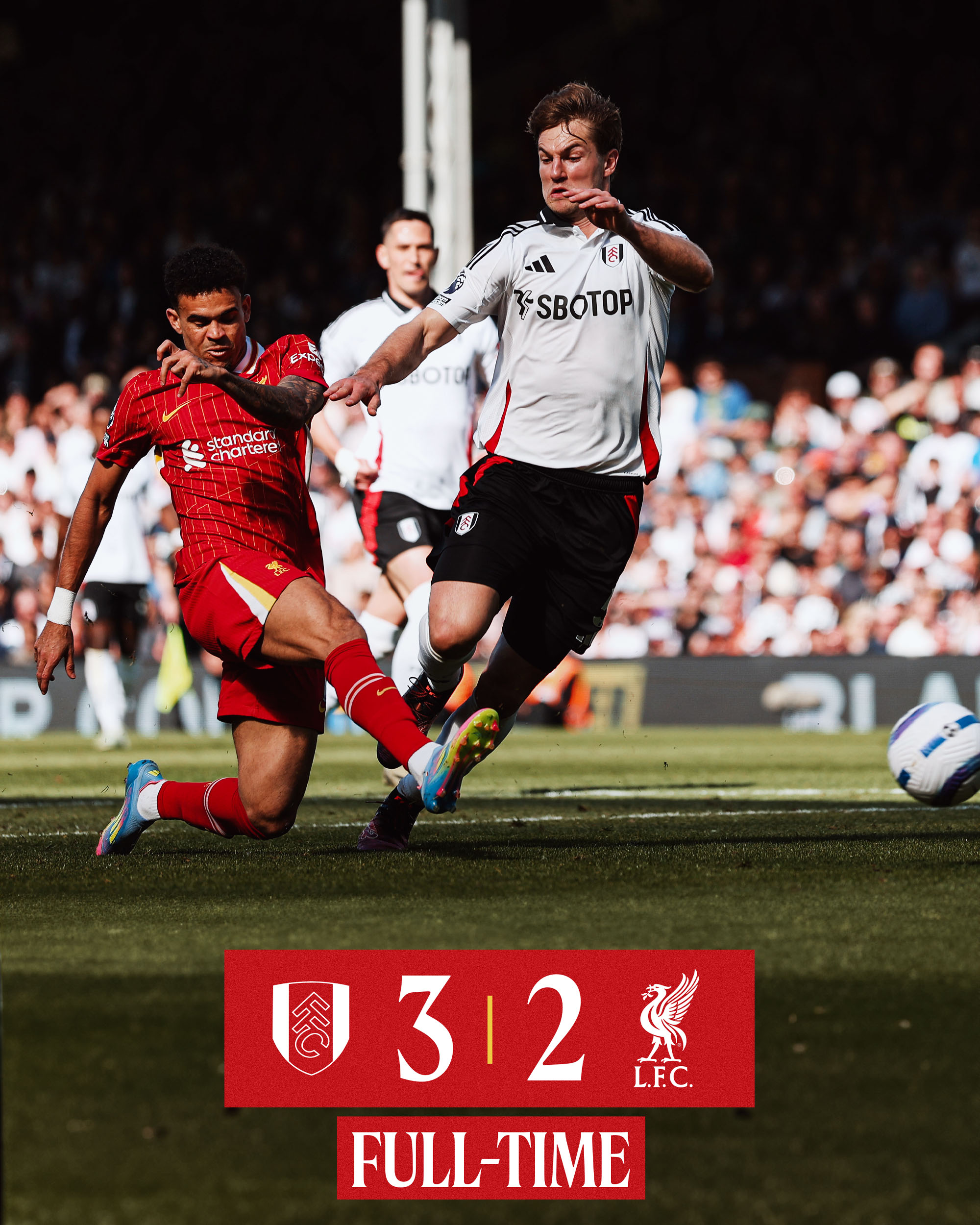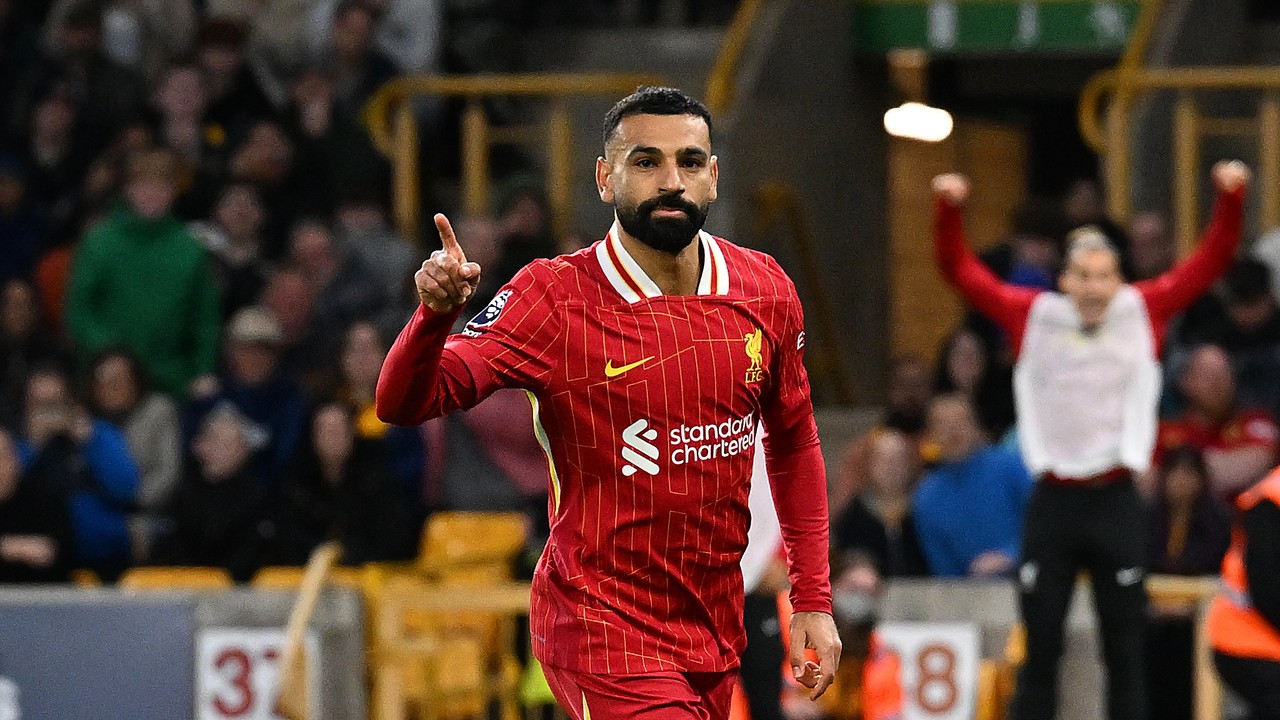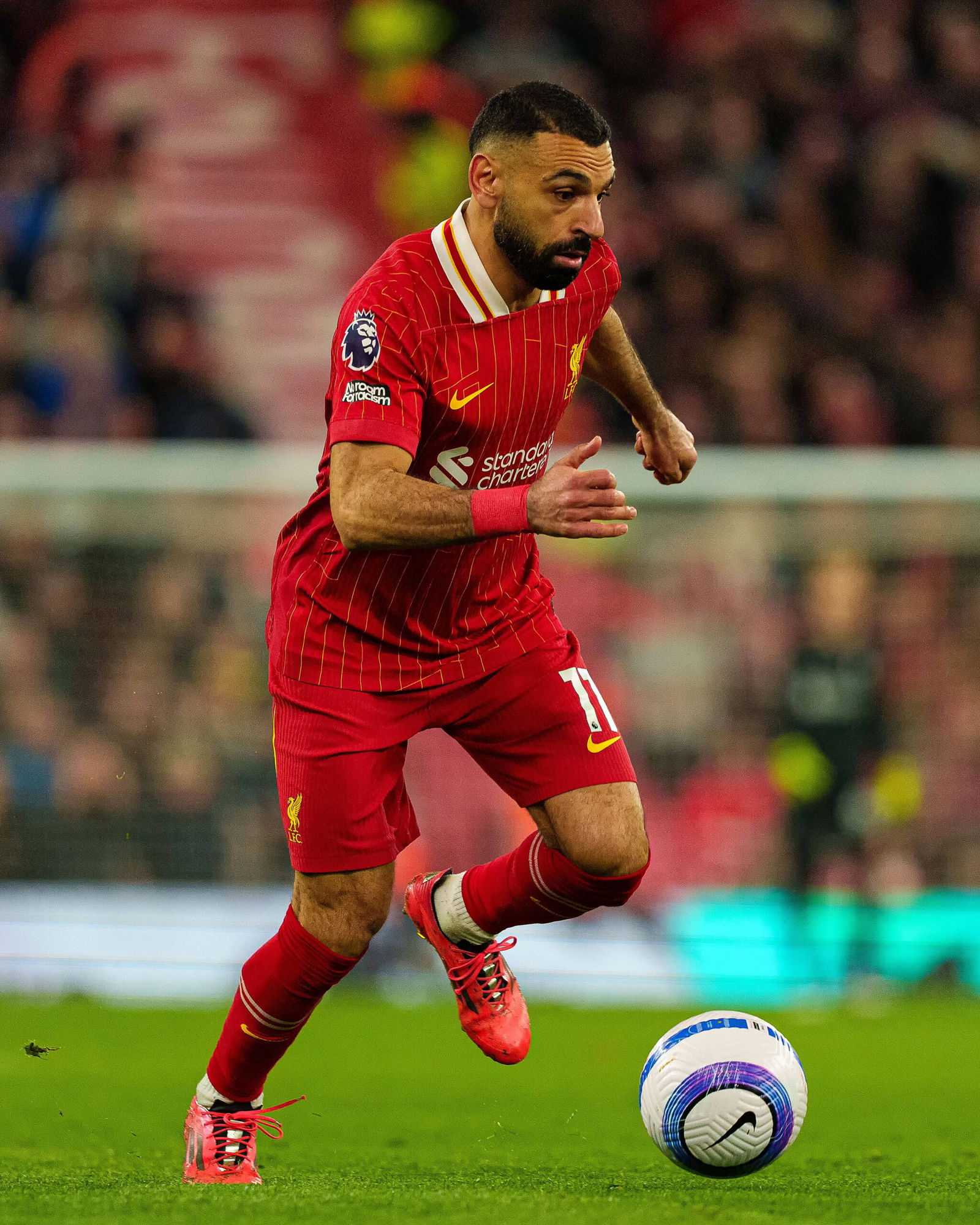Few supporters or analysts predicted Liverpool’s 2-3 loss to Fulham, one of the more unexpected outcomes of this Premier League round.
It was only the Reds’ second league defeat of the year, and it happened against a team in the middle of the table that is generally regarded as having superior talent.

Beyond the three points lost, Liverpool’s failure reveals more serious issues. The club seemed far from title contenders since they were outplayed tactically, lacked offensive acuity, and committed costly defensive mistakes.
The team’s talisman, Mohamed Salah, is arguably the most urgent problem, as his continued poor play has made the already difficult contract renewal negotiations much more difficult.
Salah’s Annual “Late-Season Slump” Returns: 4 Games, 0 Goals
Mohamed Salah has been Liverpool’s most prolific and dependable striker ever since he joined the team, scoring important goals in the Premier League and in Europe.
Salah, who is 32 years old, has scored nearly 30 goals across all competitions this season, including 27 goals and 17 assists in the Premier League.
His contributions to Liverpool’s early lead in the championship were crucial in the first half of the season.

But as the season moves into its crucial last stretch, Salah’s productivity has once again experienced a precipitous decline, a trend that has been all too familiar.
Salah has only taken six shots overall in his last four games and has not scored.
His last open-play goal was against Manchester City back in February, while his most recent goal came against Southampton from the penalty spot.

Late-season weariness has been a persistent problem in recent years, maybe made worse by the stress of a tough season and the fasting of Ramadan.
This past pattern raises concerns for Liverpool’s board, which is one of the main reasons they are reluctant to make an unconditional offer of a long-term contract extension.
Tactical Inflexibility: Salah’s Aversion to Rotation Raises Eyebrows
Salah’s decline is linked to both his resistance to rotation and his productivity. Club sources claim that the Egyptian forward has always been hesitant to take on a supporting role.
Salah firmly loves to remain on the field, even in games where his performance suffers, and he frequently reacts badly when substituted.

Salah has started all 40 Premier League and Champions League games this season, and in the great majority of them, he has played the entire ninety minutes.
Head coach Arne Slot’s freedom is restricted by his “non-negotiable starter” position, particularly when rest periods or tactical modifications are required.
Similar circumstances resulted in a public sideline altercation between Salah and former manager Jürgen Klopp last season. Slot is naturally concerned about a recurrence of the situation as a rookie manager trying to maintain harmony in the dressing room.

Despite being well-deserved, Salah’s influence has drawn criticism from the outside regarding Liverpool’s alleged “overdependence on stars” and has prompted internal debate about how to strike a balance between honoring heroes and the team’s requirements.
Contract Stalemate: Length of Deal the Main Obstacle
Salah and Liverpool are still negotiating, but despite their shared desire for an extension, talks have halted because of differences over the salary scale and, more crucially, the length of the contract.
In the club’s opinion, Salah is still a valuable player. His name still has international commercial weight, and his first-half performances were nothing short of outstanding.
However, the club prefers a short-term contract, possibly a “1+1” or “1+2” deal (a one-year deal with options to extend), due to worries about recurrent end-of-season drops and the natural decline that comes with aging.

However, it has been claimed that Salah’s team is looking for a lengthier, guaranteed contract that honors his legacy and continued standing as a top player.
The current deadlock is the result of this fundamental difference in expectations.
What’s Next? Mutual Compromise Needed for a Fair Resolution
Salah certainly deserves the chance to stay at Liverpool from a sentimental and legacy perspective. He has been a fan favorite, the face of the team’s contemporary comeback, and a clutch player in some of the most important games in recent history.
It’s not necessary unreasonable to keep him at his current salary. The duration of the agreement must, however, take into account his present state of health and anticipated future contribution. Liverpool is setting a firm boundary here.

Both sides must make concessions in order to achieve an agreement: the player must accept the realities of age and rotation in a team looking to rejuvenate under a new management, and the club must appreciate Salah’s status.
Should Liverpool Renew Salah’s Contract?
Salah’s future involves much more than just contract numbers; it also involves Liverpool’s long-term competitive goals, dressing room dynamics, and reconstruction plan.
Liverpool is embarking on a new chapter under Arne Slot. Salah’s decision to stay may ultimately depend on his willingness to adjust to changing tactical demands, accept rest and rotation, and take on a somewhat different role.

For the club, it’s a balancing act between honoring a legend and building for the future. Whether Salah continues to shine at Anfield, or bids farewell after a glittering chapter, will likely be decided in the coming months.






